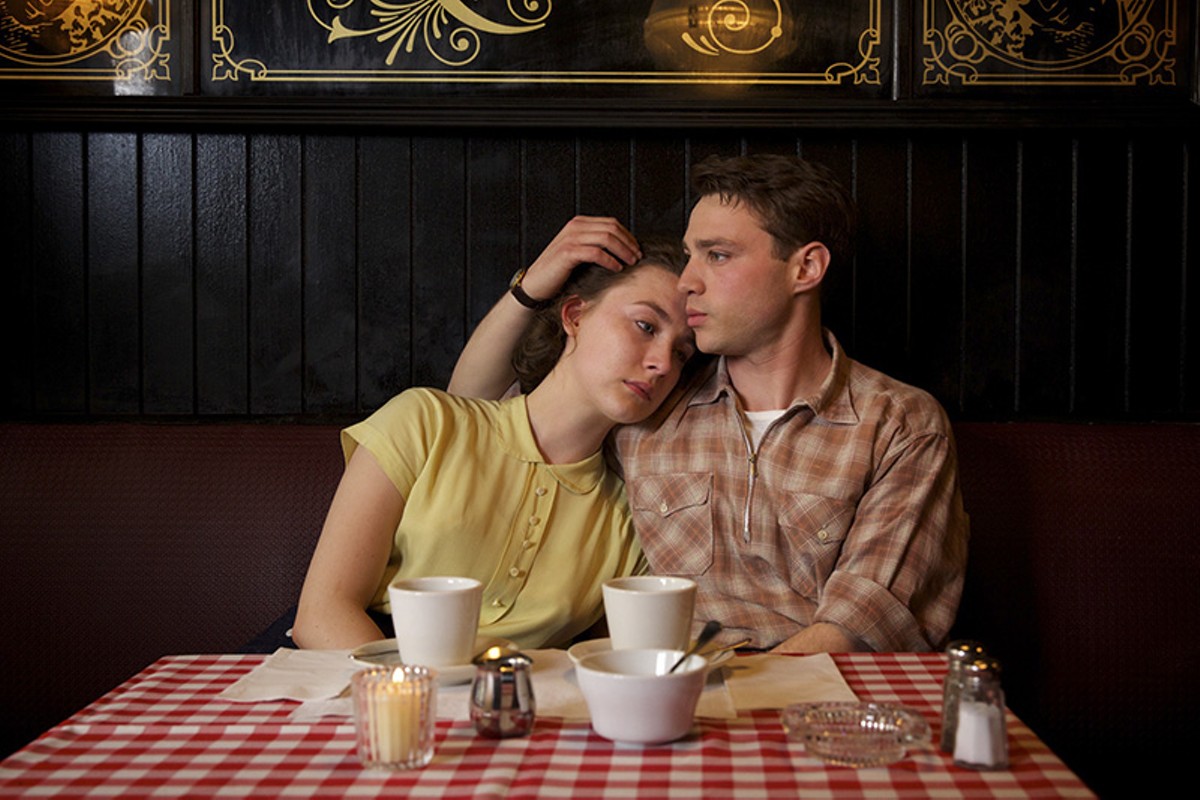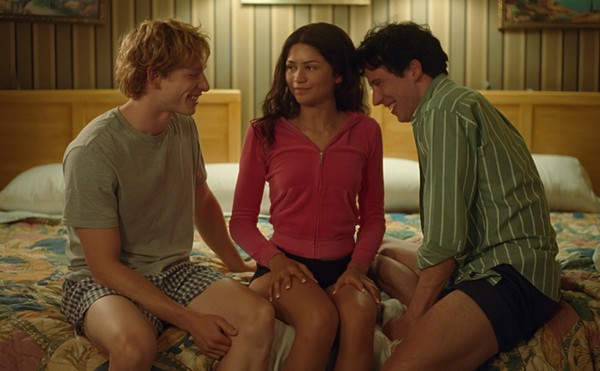It's a familiar story: In 1952, Eilis Lacey (Saoirse Ronan), a young girl from a rural Irish village, receives a sponsorship from an American priest to relocate to New York, study bookkeeping and find a home with other Irish immigrants. After an initial period of homesickness, she exercises her new independence, meets a young man and falls in love. When a death in the family forces Eilis to return to her old home, she must re-evaluate the world she left behind and the new life she has made for herself.
Based on a novel by Tóibín and adapted by novelist Nick Hornby, Brooklyn is, in many ways, the kind of story that could have been made by Douglas Sirk and Ross Hunter 60 years ago. But their version would probably have centered on the pressures of society, on guilt and shame, with Eilis' behavior outraging her friends and neighbors. As melodramas go, Brooklyn leaves its heroine unusually free from guilt; Eilis discovers her own sense of independence and embraces self-discovery. The filmmakers aren't really very interested in the social mores and restrictions that Sirk would have found fascinating. They're suspicious of characters who claim to speak for order, and allow Eilis to make her own judgments. Even the authority figures among the immigrants — Jim Broadbent as a priest, Julie Walters as the owner of a boarding house — have learned to stand back and tolerate the strange ways of their new urban life.
It's a dialogue-heavy film. The characters talk a lot about their emotions and expectations in a way that isn't always realistic, but keeps the emotional and psychological concerns of each character in the foreground. Director John Crowley's chief contributions are letting the actors work together comfortably (there are many dinner scenes or group events with five or six characters onscreen at once), and adding just enough of a period look to convey the busy, unfamiliar world into which Eilis has landed.
Why set it in 1952? (Toibin was born in 1955 so it's certainly not from personal experience.) I suspect it's because Brooklyn — and America — represents a modernity that clearly marks a break with Eilis' Irish background. The difference isn't between Ireland and America, but between a world that stubbornly refuses to change and one that is open to the future. If the story were set in the '60s or '70s the culture shock might have been greater, but a lot of that modern world — television, rock & roll, changes in fashion — would surely have reached even small-town Ireland. The '50s remain familiar despite their distance, yet there are curious details that allow the viewer to share Eilis' sense of being an alien in the new world that would have been lost in a more contemporary setting. Did department stores really use pneumatic tubes instead of cash registers? Would an Irish woman — or anyone — today have to be instructed by her housemates in how to eat spaghetti before meeting her Italian-American boyfriend's family?
But more than the melodrama, more than the '50s-era décor, Brooklyn is held together by Saoirse Ronan's quiet but brilliantly controlled performance. As a teenager, Ronan showed great promise in otherwise flawed films by Peter Jackson, Sally Potter and Neil Jordan. Despite her youth (she was twenty when Brooklyn was filmed), she casually dominates the film, growing from timid girl at the beginning to a confident woman, experienced and proud of it, at the end.






